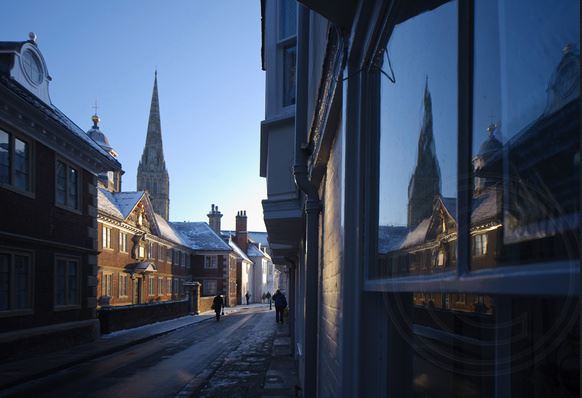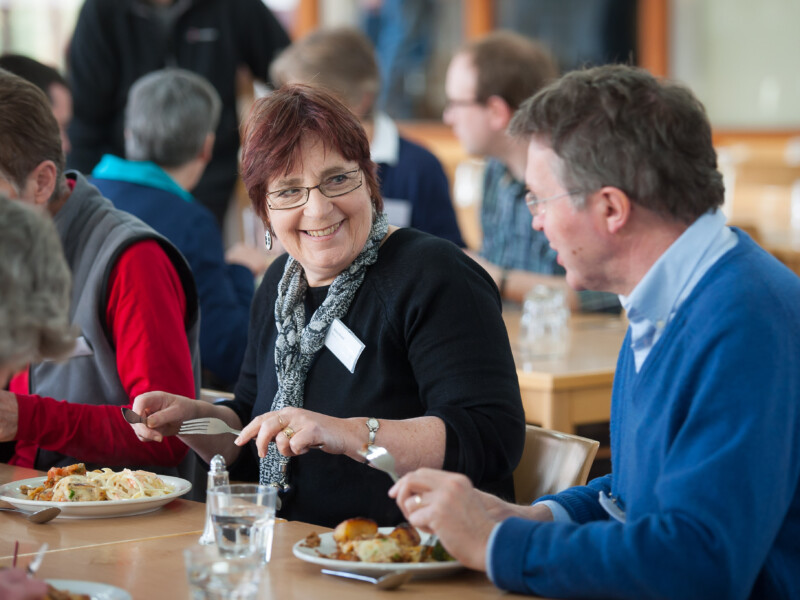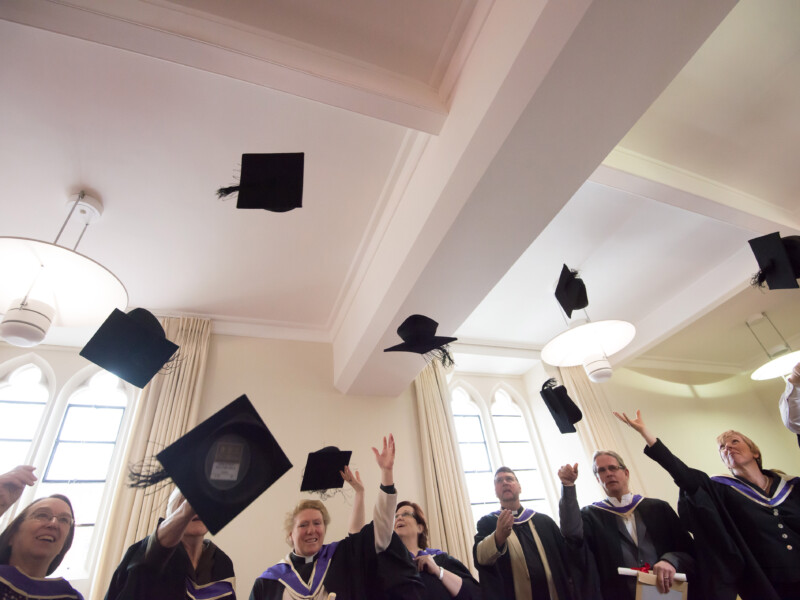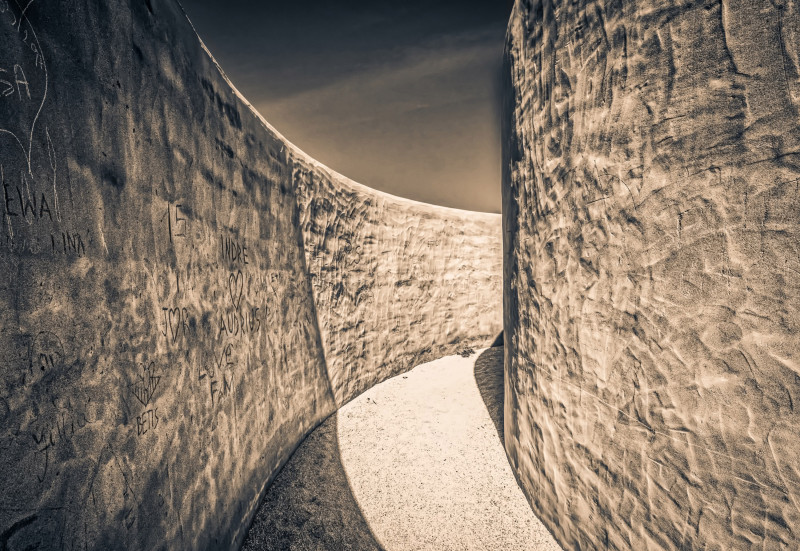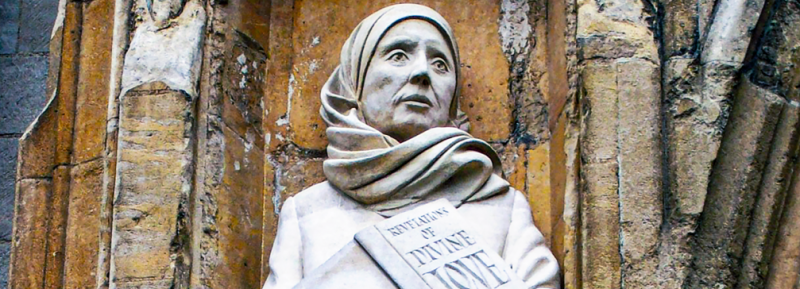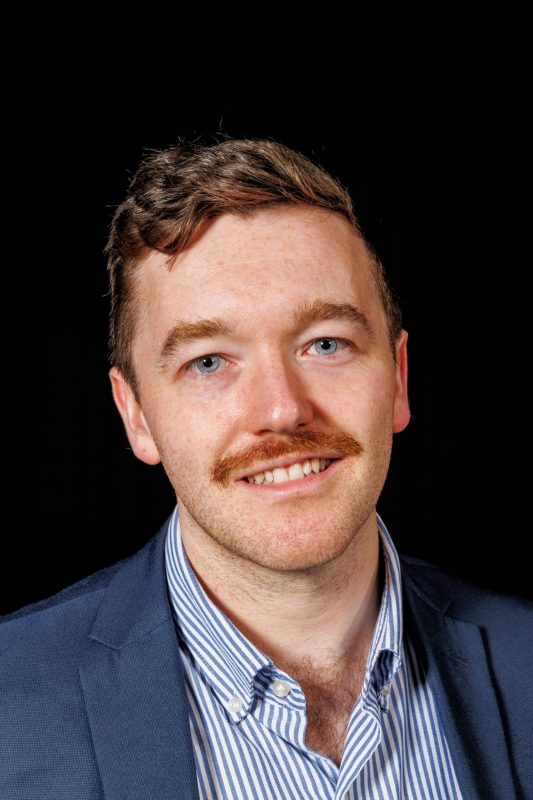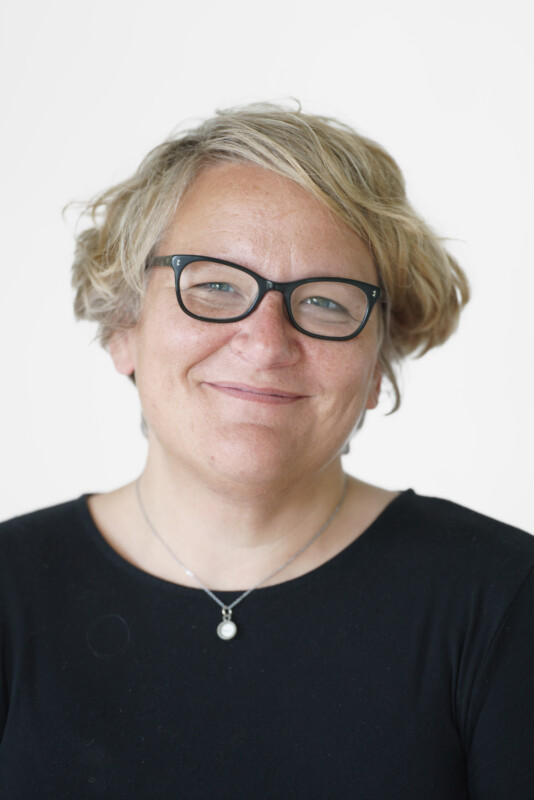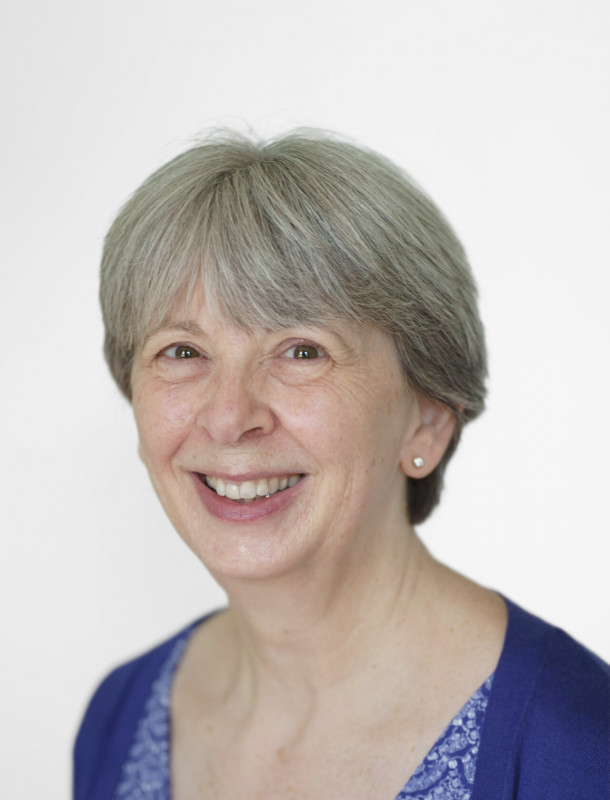- Courses
- Ministry Formation
- Stay, Meet & Eat
- Events Diary
- Join the mailing list
- Courses
- Ministry Formation
- Stay, Meet & Eat
- Events Diary
- Join the mailing list

Postgraduate Study in Christian Spirituality
Join us
to explore the search for spirituality, one of the most enduring aspects of human cultures
“Spirituality” is an expression of the way we search for meaning and seek to live out our fundamental beliefs and values in everyday life.
In Christian terms, spirituality is concerned with the lived experience of the Christian faith and the human relationship with God.
Postgraduate programmes in Christian Spirituality offer an exciting opportunity to study this dynamic and interdisciplinary subject with world-leading experts. Options include a one-year certificate, a two-year diploma and a three-year master of arts degree.
News about our programme from September 2025
From September 2025 we are moving our validation for this postgraduate programme from Winchester University to Durham University. Winchester University have been excellent partners over many years for Sarum, but the move to Durham will enable us to bring together our postgraduate offerings across the college and to offer new options in the future.
This means that for the 2025-2026 year we are admitting students to the Christian Spirituality modules under the postgraduate awards for Theology Ministry and Mission through Durham University Common Awards. This is a transitional arrangement and we intend for this to change to awards in Christian Spirituality in future years. We are happy to give further information about these transitional validation arrangements.
About our offering to date validated by Winchester university:
“The MA in Christian Spirituality at Sarum College is the very best programme of its sort in the UK. It blends contemporary and historical approaches, engages with some of the most influential texts, traditions, and thinkers in the history of Christian spirituality, and is taught and led by a distinguished team of scholars. It is attentive to practice and explores some of the most pressing theological and practical questions through the always generative and interesting lens of Christian spirituality.”
Dr Ashley Cocksworth
Reader in Theology and Practice
University of Roehampton
Come and find out more at one of our free Taster Sessions:
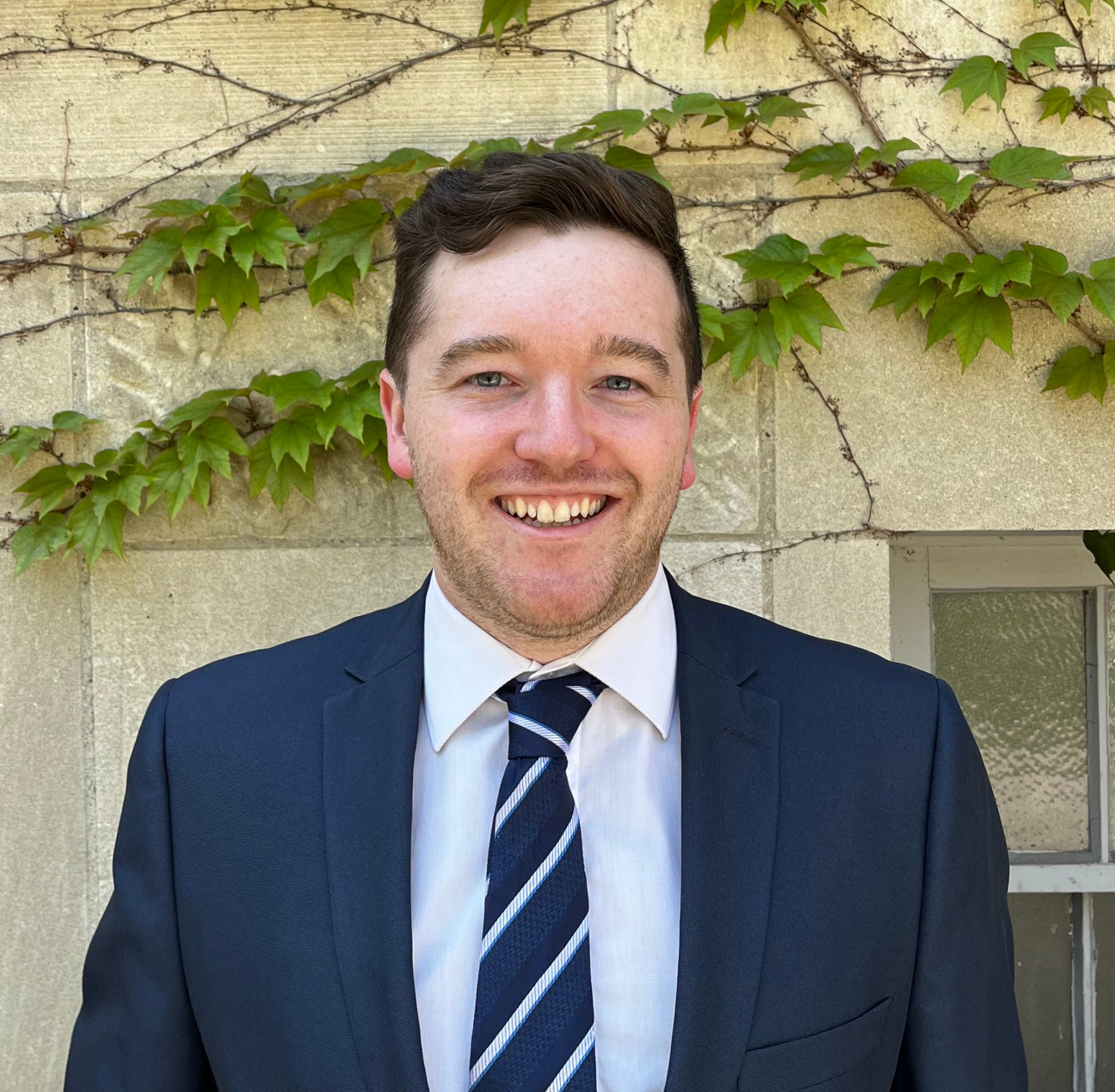
Introduction to Postgraduate Study in Christian Spirituality
Dr Michael Hahn, Programme Leader
Postgraduate Study in Christian Spirituality
We excel at giving our students personalised support and our programmes have been commended for their high quality, rigour, breadth, flexibility, and creativity. We strive to create a learning environment where students collaborate and support one another in small groups.
To help achieve this, we run teaching weeks for modules over a few residential intensives during the year. The course structure is designed in such a way that modules combine classroom and home-based study so that students benefit from personal contact with tutors and lecturers, with minimal disruption to domestic or professional responsibilities.
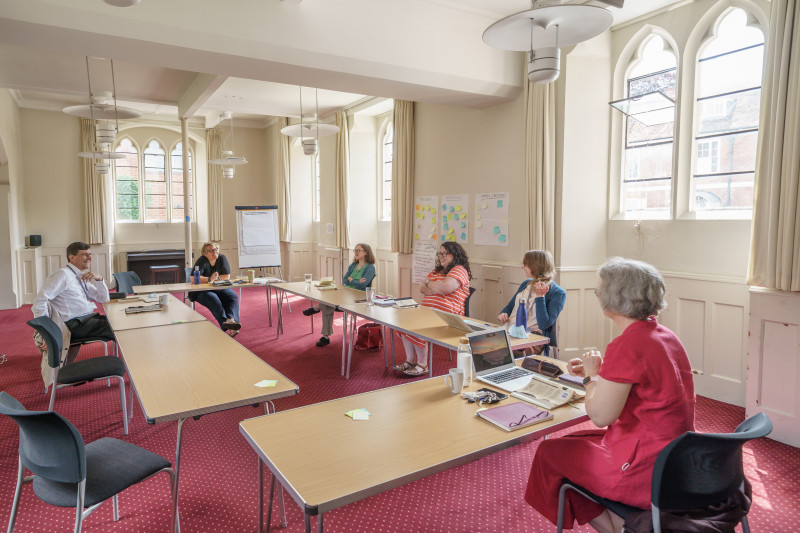
The learning community: A student perspective
Sarum College has given me a real experience of being a proper student. The group that’s come together has been absolutely fantastic: we come from different theological backgrounds and we just got on so well. I think it’s meeting together, chatting in the evenings. The tutors have stayed and chatted in the evenings. We’ve met over the meals, breakfast, lunch, dinner and met with people on other courses as well.
That has been a huge bonus so that when you go away to do your real work – you have to recognise that much of the real work is done when you’re away from here – you have the motivation to do it and it still feels like you’re part of this (group). And I think being a theological community, even though there is quite a freedom to explore, there’s that sense that you’re dealing with things that are really important for us all.
People are very supportive here and; you can go at your own pace. Also, you’re here in this environment where you look out to the cathedral. It has a real sense of history, and a theological history as well, which makes a great advantage to studying here. I think the fact that everything is on site gives a sort of cohesiveness to it and a friendliness of it.
I also found the support that you get from the team really encouraged me that this would be a good place to be.
Alison Goodlad, Sarum MA graduate
Find out more
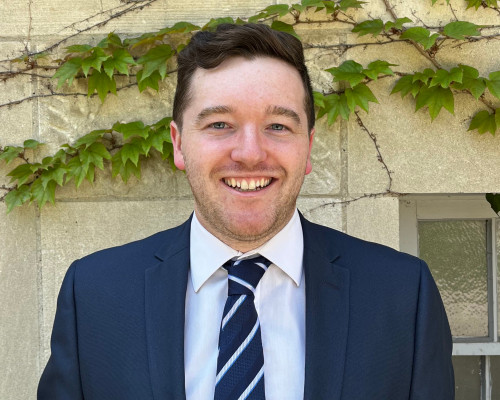
Dr Hahn’s current research and teaching expertise covers medieval spirituality, the Franciscans, and the development of mystical theology. He is particularly interested in women in the Franciscan tradition, including Clare of Assisi and Angela of Foligno.
Why choose Sarum College for postgraduate study in Christian Spirituality?
“I can remember reading all the module titles and it just made my brain fizz. The breadth of modules and the interesting connections they make were a huge selling point.”
The Revd James Stickings
Rector, Oxford Diocese
Five key reasons to choose Sarum:
- The programmes are flexible within university regulations. Teaching schedules are designed to fit around working life or other commitments, so you can take up further study without having to give up your job.
- The schedule of intensive teaching weeks up to three times a year combined with both remote and online learning support means you get a lot of in-person teaching that can fit around busy lives without relocating.
- Alongside the faculty at Sarum (all active researchers), guest lecturers who are experts and active researchers on the topics they teach are drawn in for each module. So the teaching is always research-led and students benefit from a wide range of lecturers during your time with us.
- Our programmes and modules are forward thinking and diverse, and explore contemporary issues into the study of theology. View the full list of Christian Spirituality modules
- We build study skills support into our programmes, so there are lots of opportunities to develop your research and writing skills throughout your time with us. We incorporate study skills sessions into modules and tutors are available for 1-to-1 tutorials at your convenience.
The Programme
Sarum College’s postgraduate programmes offer an exciting opportunity to study the dynamic and interdisciplinary subject of Christian Spirituality with world-leading experts to explore theological, historical, pastoral and other contemporary points of view.
Options include a one-year certificate, a two-year diploma and a three-year MA degree.
Student-Centred Learning
External examiners have praised Sarum for the personalised support we offer to students. Our programmes have been commended for their high quality, rigour, breadth, flexibility, and creativity.
We create a learning environment where students collaborate and support one another in small groups. One of the ways we do this is by running teaching weeks for modules over a few residential intensives during the year. The course structure is designed to combine classroom and home-based study so that students benefit from personal contact with tutors and lecturers, with minimal disruption to domestic, ministerial, or professional responsibilities.
Programme Structure
Postgraduate courses are structured to combine classroom and home-based study so that students benefit from close contact with tutors and lecturers with minimal disruption to domestic, ministerial, or professional responsibilities.
Award options:
- Postgraduate Certificate (one year)
- Postgraduate Diploma (two years)
- MA (three to four years)
The programme has built-in flexibility to adjust the pace to suit your lifestyle.
Students learn collaboratively in a modular curriculum arranged around four-day residential teaching intensives throughout the year. Consolidating our class-based teaching in this way widens access to working students and allows the College to recruit world-leading scholars and seasoned practitioners to lecture on modules.
Teaching Team
The teaching team for modules draws from a global pool of experts in their field, as well as Sarum’s core academic staff and visiting scholars.
The Setting
The study of theology in Sarum’s historic buildings began in 1860. The Cathedral Close setting, communal and library spaces make it an ideal environment for study and reflection.
During residential modules you stay in College guest rooms with en-suite facilities. Many rooms have lovely views overlooking the Cathedral, the Close and the Sarum quad.
View facilities on our hospitality website
Fresh, home-made food is cooked and served on site, and the Common Room provides a bar and space for continued conversation into the evening.
Teaching rooms are well equipped, including large screens for live-streamed events. The library is well-stocked with access to a catalogue of books and journals, and you can make use of it when you like. The library can be used outside of residential periods for research and writing.
The Cathedral is just across the lawn from College and some students participate in the pattern of liturgy there. The Butterfield Chapel is also available for private worship space.
Auditing Modules
Postgraduate course modules are open to all so you may enrol on any module as an “auditor” without registering for an accredited programme such as the full MA.
An auditor participates in a module in exactly the same way as students on the postgraduate programme, but does not prepare an assessment at the end of it and receives no academic credit.
There is also an option to choose to participate in a module as an assessed auditor for those who would like to add discipline and tutor feedback to their study but aren’t sure about taking on a full degree programme.
Enrolment Requirements
The normal requirement for postgraduate studies is a good first degree in a related subject. However students over the age of 21 with other relevant experience and/or training may be admitted subject to interview.
How To Apply
Applications for a September 2026 start are due by close of business Friday 14th August 2026.
Sarum-College-Application-2026
Academic Calendar 2026-27 Published Feb 26
As of February 2026, the annual tuition fee is still set at £2990 per annum.
For all postgraduate enquiries please contact Clair James, MAAdministrator or telephone 01722 424827 (01722 424800 for the main reception).
Funding
Looking for sources of funding to help with costs? See our page on Sarum College Bursaries, with a list of Grantmaking Trusts
Members of the Armed Forces can apply for ELCAS funds for the MA in Christian Spirituality as Sarum College is a registered learning provider.
Upcoming short courses
03 March 2026
Exploring the Bible
A 10-week term on the New Testament to read and encounter the ...
View course Divine Ordinariness: A Poetry-Writing Retreat
10 March 2026
In this poetry retreat, which is suitable for complete beginners or experienced writers alike, you ...
View course Dreams: A Path to Wholeness
12 March 2026
Have you ever wondered what on earth that dream you had last night was all ...
View course The Wisdom of Julian of Norwich for Today
14 March 2026
Julian of Norwich lived and counselled people through the turbulent and distressing era following the ...
View course
No event found!
Study at Sarum
Book a visit or join us for a taster session: cjames@sarum.ac.uk
Meet the team
Visiting Scholars in Christian Spirituality
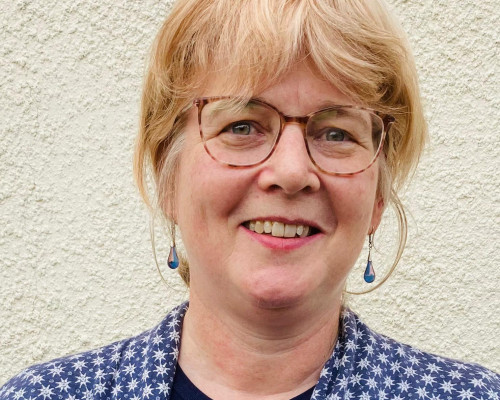
Dr Conway-Jones is Honorary Research Fellow at the University of Birmingham. She is also an Accredited Lay Worker of the Church of England.and actively involved in Jewish–Christian dialogue. For four years she served as Honorary Secretary of The Council of Christians and Jews and is now Chair of Birmingham CCJ.
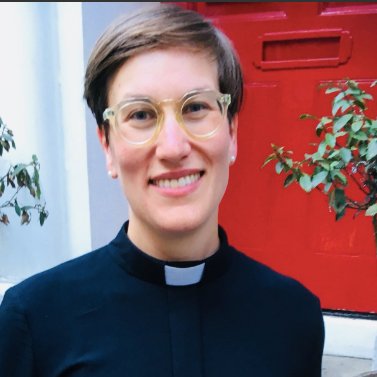
The Revd Dr Ayla Lepine is the Ahmanson Fellow in Religion and Art at the National Gallery in London. Her work includes teaching the King’s College London and National Gallery collaborative MA in Christianity and the Arts, and building diverse new networks within arts organisations and faith communities. Her MA and PhD at the Courtauld Institute of Art focused on the modern British responses to the Middle Ages, especially the Gothic Revival and Pre-Raphaelite movement.
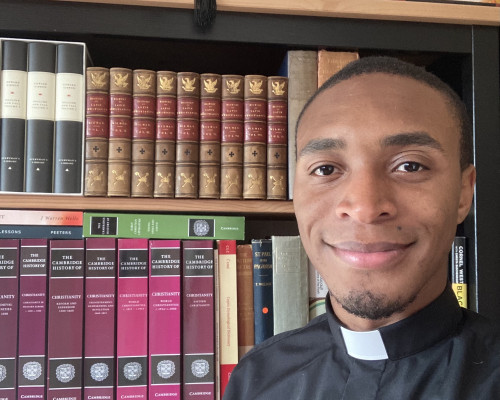
Fr Robinson-Brown writes in the areas of sexuality, gender, ethnicity, Black Liberation Theology, Queer Theology and Christianity and the arts. His most recent book is Black, Gay, British, Christian, Queer: The Church and the Famine of Grace (2021). He is Assistant Curate at St Botolph-without-Aldgate in the City of London and Vice-Chair of OneBodyOneFaith.
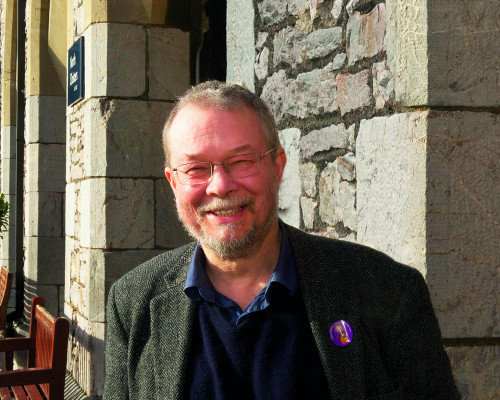
Christopher Southgate is a much published poet, whose work includes a verse biography of T.S. Eliot, and six other collections, most recently Rain Falling by the River (Canterbury Press). He has been commended in the National Poetry Competition, and has given readings in venues from New York University to the Edinburgh Fringe.
He read at East Coker and Little Gidding in the commemorations of the 50th anniversary of Eliot’s death. A former chaplain in university and mental health contexts, Chris is an experienced leader of workshops and retreats. His theological works include The Groaning of Creation and Theology in a Suffering World: Glory and Longing, based on the 2014 Sarum Lectures.
He is Professor of Christian Theodicy at the University of Exeter, and editor of the Journal of the TS Eliot Society (UK).
Sign up to our newsletter
Fill in and submit the form below and we'll add you to our mailing list for news about Sarum College.
"*" indicates required fields


